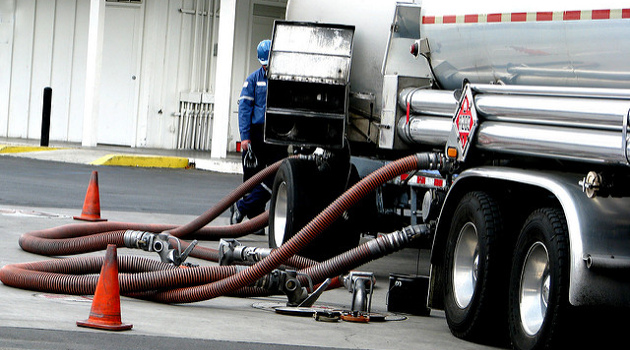Recent years have been very depressing for supporters of free trade.
Trump pushed protectionist policies.
Now Biden is pushing protectionist policies.
And the European Union is pushing protectionist policies using global warming as an excuse.
More specifically, EU politicians and bureaucrats in Brussels have rammed through a so-called Carbon Border Adjustment Mechanism (CBAM), which is euro-speak for a new protectionist tax on imports that are not sufficiently green.
The Wall Street Journal‘s editorial summarizes some of the problems.
The European Parliament this week pulled the trigger on the opening shot in a new climate trade war. …Foreign companies that haven’t paid for carbon emissions at home will have to pay a tariff when exporting goods to Europe. …Climate coercion advocates say a tariff is needed to avoid “carbon leakage,” which is their term for the flight of manufacturing to countries with less onerous emissions restrictions. This is a tacit admission that Europe’s climate policies are failing. …European consumers won’t pay higher prices for greener goods unless the Brussels tax man forces them to. …Foreign companies and governments have raised concerns about the European carbon border tax, which imposes complex and costly compliance burdens and then imposes steep default tariffs on companies that don’t play along. China and India are in the crosshairs of this border tax, although companies from any country that doesn’t impose emissions taxes will have to pay. That includes U.S. firms. …Consumers will be the big losers, first in Europe and then elsewhere.
In his Bloomberg column, Professor Tyler Cowen pointed out some practical problems with the EU’s scheme.
There is a right and a wrong way to encourage the world to use greener energy. Unfortunately, the European Union’s move toward a carbon tax on imports — essentially a tariff on products made using too much dirty energy — is the latter. …Economic changes take place at the margin, and currently the EU is engaged in substitution toward coal, a very dirty energy source. …The tariffs will lead to more coal use and a dirtier energy supply. Be suspicious of green energy policies which at first make the problem worse. …So, despite about as strong an incentive as possible — a war — the EU made the harmful rather than the beneficial adjustment. Now it is expecting that much poorer nations, often with worse governance structures, to do better. Not only is this naïve, but it is also protectionist….it’s easy to imagine China and India not improving their energy policies as a result of EU tariffs. They, like the EU, have domestic pressure groups… In general, Western attempts to shape those nations have failed more than they have succeeded. So again the negative short-term results of the policy — more European coal use — could outweigh any longer-run benefits. Even the positive long-run effects are up for grabs. …the tariff hike…makes the exporting nations poorer than they otherwise would be. Poorer nations tend to be less interested in improving their environments… And extreme poverty worsens other global problems… Should EU policy make it more difficult for Africa to industrialize? …Once protectionist measures are in place, they are hard to reverse. The EU would be reaping tariff revenue, and domestic EU industries would be receiving trade protection. Any reclassification of the imports as fundamentally “greener” would require an investigation across borders and clearance through multiple levels of bureaucracy. Such changes will not be easy to accomplish, especially in an era increasingly enamored of trade restrictions. …the most likely scenario will play itself out: The EU will spin its wheels, indulging in protectionism and feeling good about itself — all at the expense of our planet’s future.
The part about “reclassification of imports” is especially worrisome. For all intents and purposes, the EU will have a corruption-enabling process where industries on all sides will have incentives to hire lots of lobbyists.
That will line the pockets of bureaucrats who “retire” and become facilitators, but it won’t be good for anyone else.
Last but not least, Tori Smith explained for American Action Forum that the EU’s protectionist approach is a violation of trade commitments.
International trade law and WTO experts such as Joel Trachtman of Tufts University and Jennifer Hillman of the Council on Foreign Relations have examined at length the areas where a CBAM might trigger a WTO violation… there do seem to be three principles to follow to have a “reduced risk of violating WTO law” when considering a CBAM: (1) the carbon tax must apply to domestic goods and imports; (2) imports from all WTO members must be treated the same; and (3) rebates for exports cannot exceed the carbon tax. …The EU’s CBAM could run afoul of these commitments because it gives special treatment to countries that already have a carbon price. … Compliance with WTO commitments should be a top priority when considering any new tariff or tax.
Sadly, the World Trade Organization already has been weakened, so I won’t be surprised if officials somehow decide to give a green light to the EU’s protectionism.
Which will be a shame since the WTO for many years actually did a good job.
P.S. You won’t be surprised to learn that the Biden Administration also is interested in carbon protectionism. Indeed, there was plenty of green protectionism is his misnamed Inflation Reduction Act.
———
Image credit: Rennett Stowe | CC BY 2.0.





